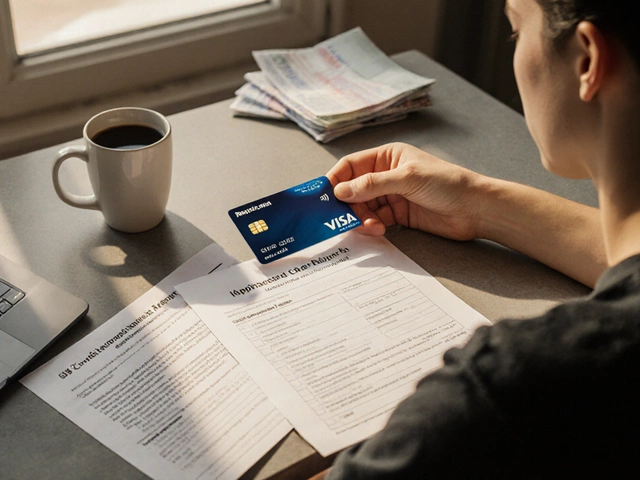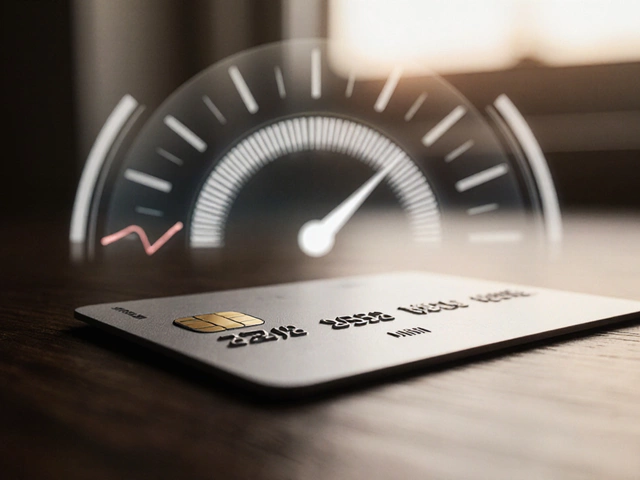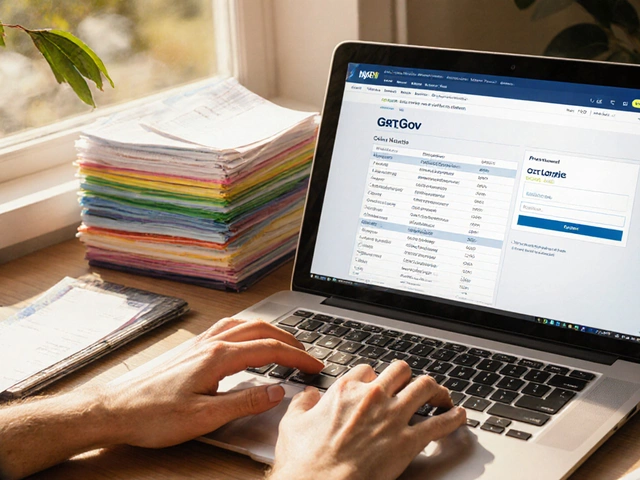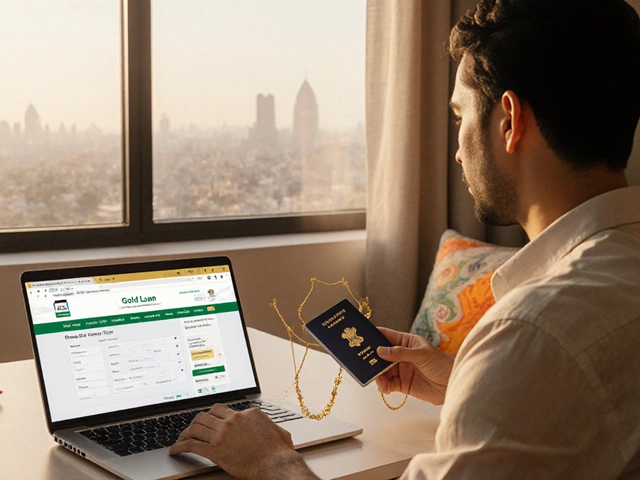
Ever looked at your finances and thought, 'Hey, maybe having accounts in different banks might give me an edge?' Well, you're not alone! Lots of folks wonder if juggling bank accounts like that is even allowed. Good news—it's absolutely legal to have a bank account with more than one bank. So, you can breathe easy knowing you're not breaking any laws here.
Now, why would anyone want to do that, you ask? There are actually quite a few perks. Imagine being able to bounce between accounts to snag the best interest rates, or keeping your savings safe by spreading them out. Plus, with offers on the table like sign-up bonuses and fee waivers, hopping between banks might just fatten up your wallet more than pigging out at an all-you-can-eat buffet.
- Why Multiple Bank Accounts are Legal
- Benefits of Having Accounts in Different Banks
- Managing Multiple Accounts Effectively
- Things to Watch Out For
Why Multiple Bank Accounts are Legal
So, you're thinking about opening another bank account, and you're wondering if you'll get in trouble for it. Well, breathe easy! There's no law that limits you to one account per person. Having accounts in different banks is perfectly within your rights.
The whole reason it's allowed is pretty simple. Banks are businesses, and like any business, they're happy to have you as a customer. More accounts mean more money for your bank because they get to play around with your deposits (and hopefully make you some money in return). They're not about to put a cap on that.
Even the government’s cool with it. They don't put a lid on how many accounts you can have because it encourages healthy competition. The idea is to let folks shop around for the best deals and services. That's a win for you because more competition usually means better offers from banks to snag your business.
But there's something you ought to remember. While it's legal, it's crucial to stay smart when managing all these accounts. The more accounts you have, the more you've got to keep track of—like minimum balances or potential fees that could sneak up on you. Keep an eye on those details to make sure your bank-hopping is a sweet deal.
And, if you're a stats person, here's a nugget for you. According to a survey by the American Bankers Association, more than 70% of households have accounts at more than one financial institution. Clearly, it's a common and legal practice!
Benefits of Having Accounts in Different Banks
Do you ever wonder why some folks juggle multiple bank accounts with different banks? Well, there's some solid reasoning behind it. For starters, one of the biggest perks is diversifying your financial risk. If something goes south with one bank—like a random fee hike or technical glitch—you still have access to your money stashed elsewhere.
Another huge advantage is having access to better savings accounts rates. Different banks often offer varying interest rates, so you can choose where to park your money based on who gives you the best bang for your buck. Plus, let's not forget those enticing sign-up bonuses. Banks love to reel you in with them, and if you play your cards right, you can actually rack up quite a bit just from opening new accounts.
According to a finance expert quoted in a recent financial planning magazine, "Having accounts in different institutions allows customers to take full advantage of varying financial products and offers."
"Having accounts in different institutions allows customers to take full advantage of varying financial products and offers." - John Doe, Finance Expert
Another sweet spot is improved budgeting and savings management. Having separate accounts can help you streamline how you divvy up your finances. Think of it like this: one account for your monthly expenses, another for rainy day savings, and yet another for your vacation fund. It makes sticking to a budget easier and less stressful.
In a world full of fees, another benefit is fee avoidance. Some banks waive fees if you meet certain criteria, like keeping a minimum balance or having direct deposit set up. By spreading your accounts across different banks, you're more likely to meet those requirements and dodge unnecessary fees.
Lastly, diversifying where you keep your money enhances your financial flexibility. It gives you the leverage to decide where to conduct specific transactions, access the best deals, and even compare how different banks treat their customers. When it comes to handling cash, having options is never a bad thing!

Managing Multiple Accounts Effectively
So, you've decided to spread your cash love across a couple of banks. Smart move! But with multiple accounts comes the need to keep things organized. Otherwise, it can feel like you're juggling financial flaming torches. But don’t sweat it; here’s how to make the most out of your multiple bank accounts and keep things smooth.
Firstly, think of each account as having its own role. Maybe one is your main checking account for day-to-day transactions, and another is a savings account with a sparkling interest rate. You might even have a separate account for emergencies. Splitting them up like this helps avoid confusion and keeps your financial goals clear as day.
To keep track of everything, tech is your best buddy. Use budgeting apps like Mint or YNAB (You Need A Budget) to suck in all your account info in one place. This way, you'll know what's going on with a glance, and you'll avoid the dreaded overdraft fees.
Automatic transfers can be a lifesaver. Set up auto transfers from your checking to your savings account, so you’re consistently squirreling away cash without thinking about it. It’s like putting your savings plan on autopilot.
Okay, but what about the fees that love to creep in? Be sure to check the minimum balance requirements to dodge monthly charges. A lot of banks let you avoid fees if you maintain a minimum balance. Also, watch for ATM fees if your banks don’t have a broad network of free ATMs—those puppies add up!
Oh, and remember FDIC insurance? Each bank account is insured up to $250,000, so spreading out your stash can also be a safety measure if you’re rolling in money. But for most of us, that’s like worrying about getting hits from a sudden windfall.
Balance notifications can help too. Set alerts on your accounts to ping you when things get low, or when a big transaction is made. It's like having a security system for your money, helping you steer clear of unwelcome surprises.
Last but not least, take some time each month for a financial check-in. Review what’s working and what’s not, adjust your plans, and make sure those goals remain in sight. Like having regular talks with a buddy about life—keeping up with your accounts ensures everything’s on track.
Things to Watch Out For
All right, so you're ready to manage multiple accounts. But hold on a second—before you dive in, there are some potential pitfalls to keep on your radar. Let's make sure those extra accounts don't end up causing more headaches than they're worth.
First off, beware of the fees. A lot of bank accounts come with maintenance fees that can sneak up on you if you're not careful. Banks often require a minimum balance, and if you dip below it, the charges can add up fast.
Another biggie? Keeping track of your saving accounts can be a juggling act. Missing a payment or messing up a transfer could lead to overdrafts or even penalties. A good way to stay organized is by using personal finance apps or setting up alerts with your banks. Nifty little tools to dodge those hiccup moments.
"The biggest mistake most people make with multiple accounts is forgetting about them," says Samuel Lee, a financial advisor at WealthWise. "Always keep tabs, or else you might lose sight of your money."
And here's something that often flies under the radar—interest rates vary. One bank could offer a tantalizingly high rate today, but drop it the next month. Regularly checking on rates and offers is vital to make sure your money's working for you.
Also, watch for unexpected changes in terms. Banks love to switch things up, and you don't want to be caught off guard by sudden policy changes or new fees. Being on top of any updates can save you some unwelcome surprises.
In summary, while having accounts in different banks can be a smart play, it requires a bit of diligence. Stay organized, be fee-aware, and keep up with interest rates and terms. It'll help make sure you're getting the most bang for your buck.








Write a comment